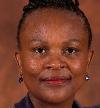If 2019 was a bad year for Public Protector Busisiwe Mkhwebane, 2020 could be worse
The year 2019 was not a good one for the Office of the Public Protector.
Public Protector Busisiwe Mkhwebane was on the wrong end of several court findings, and her detractors view her as a political actor in aid of a faction hell-bent on frustrating efforts to dismantle the vast state capture machinery to prevent further looting of the state's meagre resources.
Mkhwebane, however, held fast throughout the year that much of 2019's troubles were brought on because she went after "untouchable" politicians, leading to a smear campaign by these politicians, their acolytes and the media.
She started the year on the front foot, confirming that she was investigating President Cyril Ramaphosa.
In late 2018, then-DA leader Mmusi Maimane lodged a complaint about the R500 000 donation Ramaphosa's campaign to become president of the ANC in 2017 got from corruption-accused company Bosasa's CEO Gavin Watson.
Soon after, it emerged she was also investigating Public Enterprises Minister Pravin Gordhan for the so-called "rogue unit", which was allegedly established at SARS during his time at the helm of the tax collector, as well as the arrangements around former deputy SARS commissioner Ivan Pillay's early retirement and payout.
The complaint against Gordhan was laid by Floyd Shivambu, EFF deputy president. Since late 2018, as its own financials became the subject of much scrutiny in the wake of the looting of VBS Mutual Bank, the EFF has been attacking Gordhan. They have since emerged as staunch supporters of Mkhwebane.
She was accused of driving a nefarious agenda against Ramaphosa - Mr New Dawn himself - and Gordhan, who is seen as a key Ramaphosa ally instrumental in cleaning up the mess at state-owned enterprises. She maintained that she is merely doing her job - investigating complaints without fear or favour. Before the investigations into Ramaphosa and Gordhan were finished, the first damaging court ruling dropped.
Judge Ronel Tolmay of the Gauteng High Court in Pretoria ruled in May that Mkhwebane's report on the Vrede dairy project in the Free State was unconstitutional and invalid and set it aside.
The problem with the report was that she did not investigate the involvement of high-profile politicians - ANC secretary-general Ace Magashule and Zuma-era minister of mineral resources Mosebenzi Zwane. Mkhwebane has since often pointed out that the preliminary report she inherited from her predecessor, Thuli Madonsela, did not include Magashule and Zwane.
In the same month, Mkhwebane released her first report on Gordhan, finding him guilty of "improper conduct" over his approval of Pillay's early retirement and payout.
In July, she also found against Gordhan concerning the establishment of the so-called "rogue unit". She found that Gordhan had lied to Parliament by not disclosing his meeting with a member of the Gupta family, that SARS established an unlawful intelligence unit (the so-called "rogue unit") and that this unit allegedly obtained illegal equipment to conduct intelligence operations.
Gordhan promptly took both reports on review, not mincing his words on what he thinks of the quality of Mkhwebane's work.
Ramaphosa also became embroiled in Gordhan's legal battle with Mkhwebane on the Pillay matter. She prescribed that Ramaphosa must take appropriate steps against Gordhan, who serves in his Cabinet. Ramaphosa's legal team argued it would be inappropriate to act against Gordhan with his review of the report still pending. The court agreed with Ramaphosa.
On July 19, Mkhwebane released her report on Ramaphosa. She found he had deliberately misled Parliament when he responded to a question about a R500 000 donation to his 2017 ANC presidential campaign, in November 2018. She found Ramaphosa's actions were inconsistent with his office as deputy president at the time and he had breached the Executive Ethics Code by failing to disclose financial interest accrued to him as a result of the donations received for the so-called CR17 campaign.
In a somewhat unusual step, Ramaphosa addressed the nation from the Union Buildings on a Sunday, two days after the release of the report. He said the report contained "numerous factual inaccuracies of a material nature" and announced he would take the report on judicial review.
The ensuing court battle delivers much intrigue. The Ramaphosa camp has doubts about the legality of how Mkhwebane obtained some of Ramaphosa's financial information, while some of the sensitive campaign funding information made it into the public domain.
A day after Ramaphosa addressed the nation, the Constitutional Court delivered what Mkhwebane would later describe as the lowlight of her year: the apex court upholds a personal costs order against Mkhwebane, agreeing with the Gauteng High Court in Pretoria that Mkhwebane's entire Absa/Bankorp investigation was flawed and that she was not honest during her investigation.
That was not the last of the Public Protector's legal woes. The courts interdicted her remedial action against Gordhan and Ramaphosa pending the review applications. Judge Tolmay also delivered a personal cost order against Mkhwebane in the Vrede case.
Mkhwebane asked for leave to appeal, but in December, Tolmay dismissed this request.
If Mkhwebane thought this was the last bad news for the year, she was mistaken. On December 15, News24 and amaBhungane ran two reports on a whistleblower's affidavit, which states that the State Security Agency (SSA) drafted Mkhwebane's order to nationalise the Reserve Bank and that crucial information implicating Magashule and Zwane in the Vrede dairy farm scheme was removed from a Public Protector report on Mkhwebane's instruction.
The affidavit has been submitted to National Assembly Speaker Thandi Modise and Ramaphosa. Mkhwebane dismissed the allegations against her.
If 2019 did not bode well for Mkhwebane, 2020 could be worse. In December, the National Assembly adopted rules for the removal of the head of a Chapter 9 institution, like the Public Protector.
Three days later, the DA submitted its request to Modise to institute removal proceedings against Mkhwebane. Modise said she would consider the DA's request and their draft substantive motion in the new year.

